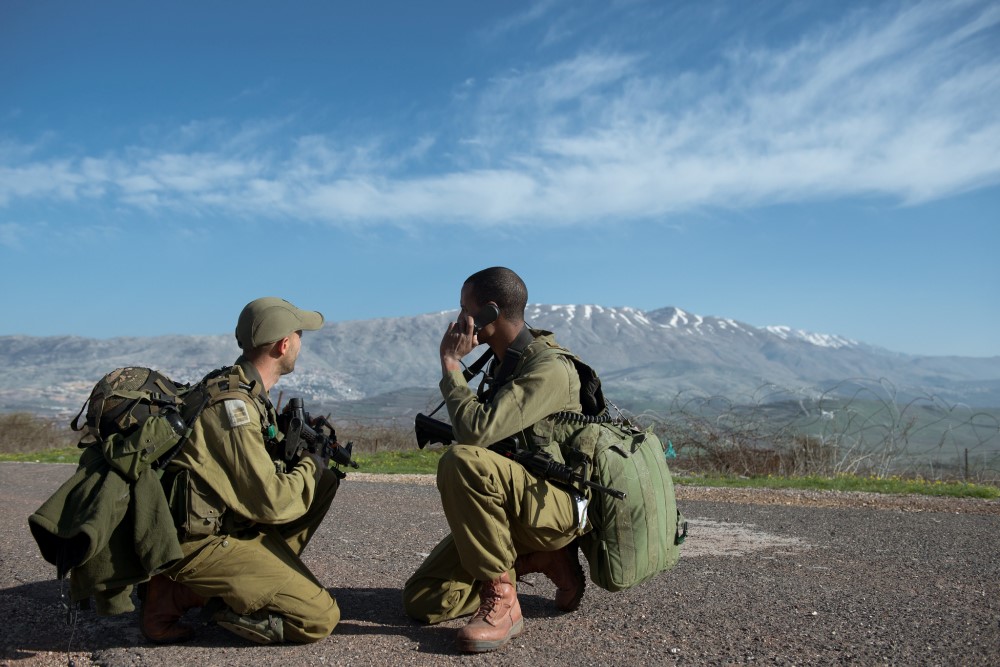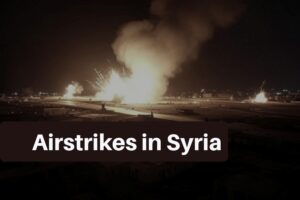
As tensions escalate on Israel’s northern border, Syria remains a pivotal factor in the regional security equation. In the event of a major conflict between Israel and Hezbollah, Syria will likely emerge as a critical theater of operations.
Syria’s strategic location, bordering both Israel and Lebanon, makes it a natural staging ground for significant military operations. Hezbollah, deeply entrenched in Syria since its intervention in support of the Assad regime, established a formidable presence across the country.
This includes an extensive network of bases, supply routes, and weapons storage facilities, many concentrated near the Lebanese border. Moreover, Syria is a crucial conduit for advanced weapons transfers from Iran to Hezbollah, including precision-guided missiles and air defense systems.
Hezbollah has also recruited Syrian fighters and expanded its influence among local populations, mainly in southern Syria near Israel’s border.
On the whole, Syria provides Hezbollah with strategic depth by serving both as an important logistical base and potential battlefront for engaging Israel. As a result, Hezbollah’s deployment in Syria complicates Israeli military calculations.
The IDF has already launched multiple strikes in Syrian territory during the war to disrupt weapons transfers to Hezbollah and other potential Iranian support. These attacks are intensifying as the risk of war between Israel and Hezbollah grows.
More generally, Syria has become a linchpin of Iranian influence in the Middle East, and a crucial part of Tehran’s regional strategy. Over the years, Iran entrenched itself deeply in Syria, using its alliance with Assad’s regime to build an extensive network of proxies and militias across the country.
Tehran has invested in building missile storage facilities, command centers, and supply lines in Syria, intending to use Syrian territory as a launchpad for attacks on Israel. In addition to Hezbollah, pro-Iran militias have an extensive presence in the Damascus area and in eastern Syria.
Russian factor, escalation risks
Complicating matters is the presence of Russia, which keeps a significant military presence in Syria since intervening in the civil war to support the Assad regime. While Russia and Israel maintain a deconfliction mechanism to avoid accidental clashes during Israeli airstrikes, the dynamics could shift in a larger conflict.
In a major war between Israel and Hezbollah, Russia’s role could become more complex. While Moscow may prefer to stay neutral, its need to protect its assets in Syria and relationship with Iran could lead to diplomatic or military maneuvering that impacts the course of the conflict.
Russia’s ability to influence the warring sides, either by attempting to limit Israel’s freedom of action in Syria or by restraining Hezbollah’s activities, could be a significant factor.
In any case, a major conflict could easily spiral beyond a bilateral confrontation, as militias loyal to Iran or even Syrian government forces could be drawn into the fighting.
An Israeli professor has predicted that in a large-scale regional war, IDF forces will end up deep inside Syria. [here’s more on his predictions]
In the final analysis, Israel views Syria as a critical battle zone in any future conflict with Hezbollah. At the same time, Israeli military planners are acutely aware of the risks and challenges posed by this front.
Overall, the presence of multiple actors – Hezbollah, Iran, Syrian forces, and potentially Russia – creates a significant risk of escalation on Syrian soil. A war between Israel and Hezbollah could quickly draw in other players, transforming Syria into a multifaceted battleground.


